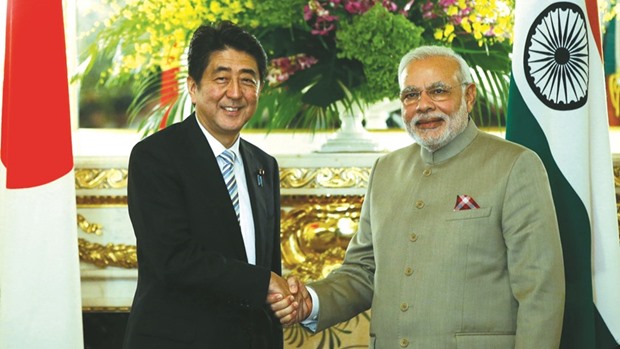India will risk jeopardising billions of dollars of investment by Japanese companies if it does not implement an arbitration award favouring NTT Docomo in its spat with the Tata Group, a senior Japanese government official said.
A decision to double investment to ¥3.5tn ($31bn) in India hinges on a quick settlement of the award, an official at Japan’s Ministry of Internal Affairs and Communications said asking not to be identified citing rules on speaking to the media. The London Court of International Arbitration asked Tata Sons to pay $1.17bn in June but the Reserve Bank of India has signalled such a payment would violate foreign-investment rules.
The spat highlights the risk of investing in the South Asian nation at a time when Prime Minister Narendra Modi is seeking to boost growth and make India the most favoured nation for global companies. Foreign direct investment into India climbed 23% to $55bn in the 12 months through March 2016, according to government data.
The feud traces its roots back to 2009, when Docomo agreed to buy shares in Tata Teleservices from Mumbai-based Tata Sons to enter the fast-growing Indian phone market. As insurance, the agreement entitled the Japanese company to sell its shares back at 50% of the purchase price, or let Tata find a suitable buyer for the stake.
As competition drove Indian operators to charge less than a penny a minute for calls – among the lowest rates in the world – profits turned elusive for the nation’s smaller carriers, prompting Docomo to sell its share in 2014. Tata Teleservices, the nation’s seventh-largest operator, has accumulated more than Rs300bn ($4.41bn) in losses, according to company data accessed from India’s Ministry of Corporate Affairs.
A decision not to implement the award or delaying a decision may prompt Japanese companies to review investments made after Modi came to power in 2014, the official said. A personal rapport between Japanese Prime Minister Shinzo Abe and Modi led to a ¥50bn loan for improving infrastructure in India apart from the investment pledge. These include bullet trains and boosting nuclear research. A spokesman for Tata Sons declined to comment on the matter saying it was sub-judice. Japan’s foreign ministry expects an early solution to the issue, it said in a statement. India’s finance ministry spokesman DS Malik also declined to comment. India and Japan last month agreed to partner on development of civil nuclear power, while Japan is also building India’s first bullet train project – a Rs980bn rail linking Mumbai and Ahmedabad in Modi’s home state.

Indian Prime Minister Narendra Modi shakes hands with Japanese Prime Minister Shinzo Abe in Tokyo (file). A personal rapport between the two leaders led to a u00a550bn Japanese loan for improving infrastructure in India apart from the investment pledge.
